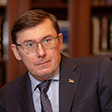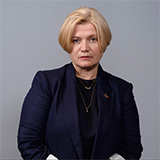The current language situation in Ukraine is unique and partly paradoxical. To The European Commission, The European Parliament, PACE, OSCE
Прибічники зміни законодавства на користь російської мови паморочать голову представникам європейських інституцій – Євросоюзу, Раді Європи, ОБСЄ тощо. Вони намагаються переконати в тому, що російська мова в Україні – не домінуюча, а мова дискримінованої меншини, яка потребує негайних законодавчих ініціатив, скерованих на її захист.
Не будучи достатньою мірою перевіреною, така інформація вже неодноразово лягала в основу заяв на підтримку ревізії мовного законодавства в Україні з боку європейських політиків та інституцій – включно до президента ПАРЄ Мевлют Чавушоглу. (Цікаво, чи він за те, щоб курдська мова стала другою державною в Туреччині? І чи дарма так раділи росіяни, коли його обрали президентом? .
Ситуація в мовній сфері, яка склалася в Україні, є унікальною та почасти парадоксальною. Межі етнічних та мовних спільнот істотно не співпадають. Вагомою є частина людей, яка рідною вважає одну мову, а говорить іншою. Мова однієї з етнічних меншин, а саме російська, домінує в більшості сфер громадського життя, в деяких із них – навіть з колосальною перевагою. Однак значна частина цїєї меншини, яка широко представлена в новій владі, вимагає взяти домінуючу мову під захист Європейської хартії регіональних мов та мов меншин, мета якої – захищати мови, що зникають.
Ще парадокс: як мінімум в кількох адміністративних областях зникнення зарожує саме державній мові – українській.
Вагому роль грає зовнішній чинник. Широку присутність в Україні російської мови сама Росія розглядає як привід для втручання у внутрішні справи сусідки. Деякі російські політики відкрито вимагають від Президента Януковича негайно надати російській мові статус державної. Вони розраховують на те, що ще більше укорінення в Україні російської мови сприятиме послабленню української національної ідентичності та надійніше зафікусує Україну в зоні російського геополітичного впливу.
Практично день в день з початком кампанії з виборів до місцевих органів влади в Україні лідери трьох парламентських фракцій, які входять до правлячої більшості, презентували проект нового закону про мови, який має ще більше розширити можливості для російської мови, натомість для української – звужує.
Щоб європейці могли детальніше ознайомитися із специфікою мовної ситуації в Україні, я попросив колег перекласти Мовний баланс англійською мовою, і пропоную цю роботу до уваги дипломатичних місій в Україні.
В додатку – ще й витяги з чинного закону про мови (від 1989 року) щодо захисту прав російської мови та її носіїв.
To: the EU leadership
The European Commission
The European Parliament
The Parliamentary Assembly of the Council of Europe
OSCE
On The Language Situation in Ukraine
The current language situation in Ukraine is unique and partly paradoxical.
Boundaries between ethnic and language communities do not coincide.
There is a significant portion of people who speak one language but consider their mother tongue another.
The language of one of the ethnic minorities, namely Russian, is dominant in most areas of public life, sometimes offering enormous benefit. But a significant section of this minority, which is widely represented in the current government, is demanding the protection of this dominant language by the European Charter for Regional or Minority Languages, the purpose of which is to protect disappearing languages.
It is a paradox: in the least, that in several regions of Ukraine it is the state language, Ukrainian, that is under the threat of disappearing.
At the same time, most of the citizens, both Ukrainian and Russian-speaking, say that they do not feel any language discrimination. In general, the two language communities tolerate each other.
Only 7% of Ukraine's citizens cite the language issue – namely the problem of the status of Russian as a state language – to the list of the 25 most important issues that concern them. (The data is taken from the survey by the All-Ukrainian Polling Service conducted in December 2009).
An external factor is also very important. Russia considers the wide presence of the Russian language in Ukraine as a ground to interfere in the internal affairs of its neighbour. Some Russian politicians openly demand President Yanukovych to grant Russian the status of the state language. They expect that further entrenchment of the Russian language in Ukraine will contribute to the weakening of Ukraine's national identity, and will more effectively fix Ukraine within the sphere of Russia's geopolitical influence.
Almost on the same day as the beginning of the local election campaign, the leaders of the three parliamentary factions that form the governing coalition submitted a new draft law on languages that will further extend the opportunities for Russian, and narrow them for Ukrainian.
Along with this, supporters wanting changes in the legislation in favour of Russian are intensifying their activity in European institutions – the European Union, the Council of Europe, and the OSCE etc. They are trying to persuade these institutions that Russian is not the dominant language in Ukraine, but a language belonging to a discriminated minority that needs immediate legislative initiatives for its protection.
Without being properly verified, the information has repeatedly become the basis for different resolutions and statements by European politicians and institutions supporting the revision of Ukrainian legislation governing language.
The Constitution of Ukraine declares Ukrainian as the state language. But apart from this, it allows the free development of Russian (Article 10). The current Law on Languages dates back to 1989 when Ukraine was a part of the USSR. It includes dozens of articles that provide for free use of Russian (see Annex 1).
The fact that Russian does not have the status of a state language is compensated, and it is confirmed by statistics, by its presence in all area of public life in comparison to Ukrainian. On the whole, the Russian language dominates all spheres of the public life in our country, except education, advertising and film distribution.
It is confirmed by statistical data collected within the Language Balance-2 that Ukrainian and Russian are the two most widely-spoken languages in public and private life. These findings from the Balance are based upon information from the population census, sociological and statistic data provided by state bodies and institutions, public organizations and trade unions, as well as expert evaluations. The author of the balance is Oleh Medvedev, Ukrainian expert, political consultant, and vice-president of the Ukrainian PR-League.
According to the Balance, Ukrainian society consists of three main language communities: Ukrainian-speaking, Russian-speaking and bilingual population. 36% of citizens speak only Ukrainian in their families, 36% – Russian, 27% uses either Ukrainian or Russian depending on the situation. Thus, Ukrainian and Russian are used by 63% of citizens on the whole. However, with parity the number of language communities ("ukrainophones" and "russophones"), and the significant majority of those who consider Ukrainian their mother tongue, the Ukrainian language's real presence in most spheres of life is below 50%, and lower than that of Russian.
In general, the prevalence and use of Ukrainian is not in line with the ethnic distribution of Ukrainians and Russians (77.8% against 17.3%), nor the number of citizens who consider Ukrainian their mother tongue (67.5% against 29.6%), nor the reality of everyday language use where nearly an equal number of the population uses Ukrainian and Russian.
In the government and public sector, Ukrainian is the predominant language for written documents, rd, at least at the central level. After the change of government, Russian has become the working language of the central government agencies and administration. Mykola Azarov, Ukraine's Prime Minister and a number of ministers and employees of the Presidential Administration do not speak Ukrainian, they do not use it during public events nor in their everyday work!
Only 40% of citizens address officials in Ukrainian, 39% – mainly in Russian, 16.4% – in both languages. The officials respond: 37% – mainly in Ukrainian, 32.5% – mainly in Russian, 26.8% – in both languages equally. In the Eastern and Southern regions, Russian is the dominant language of communication between officials. It is absolutely false to say that under the current legislation, Russian-speaking citizens cannot defend their interests before the state in Russian.
Ukrainian is also the dominant language used in schools and universities, except the big cities of the East and South. The fact that Ukrainian is the dominant language in education does not mean that it dominates education in the public sector as, during a person's upbringing and as part of extra-curricular communication, even in the Ukrainian schools, Russian is spoken widely.
In general, in the area of TV-broadcasting in Ukraine, that is a part of the Russian-speaking "TV world", Russian is definitely used more frequently. If we take, as a separate sub-group, the Ukrainian TV-channels, we could talk about certain parity between Russian and Ukrainian programmes, although prime-time on the most popular TV-channels is generally in Russian.
In Ukraine's newspaper and magazine market, Russian is dominant with a Russian to Ukrainian ratio of 68% to 32% and 90% to 10%respectively.
In film distribution, in 2008-2009, films dubbed into Ukrainian prevailed. At the same time, the amount of film copies in Russian accounted for 28%. However, taking into account the access that Ukrainian audiences have to Russian and foreign TV-channels, the dominance of Russian on Ukrainian TV becomes even more evident.
As for Ukraine's book market, Russian clearly prevails over Ukrainian: for every 9 books in Russian only 1 book in Ukrainian is published.
Ukrainian-Russian bilingualism is asymmetric because the active command of both languages and bilingual practice are typically characteristics of ethnic Ukrainians, whereas the absolute majority of ethnic Russians prefer to speak only Russian, although they say that they understand Ukrainian well. According to statistical data the language rights of ethnic Russians, and of those who consider Russian their mother tongue, are generally better and more secure than those of ethnic Ukrainians and people who consider Ukrainian their mother tongue.
The situation is a result of a clampdown and direct ban on using Ukrainian during the period when Ukraine was a part of the Moscow State (1654-1721), the Russian Empire (1721-1917), and the Soviet Union (1922-1991). It is well known that in the USSR there was an official policy aimed at forming a single Soviet nation with a common Russian language. Soviet propaganda implanted the idea that Ukrainian had no social prestige and no historical perspective.
Thus, the state must overcome the historical imbalance in securing the rights and possibilities of different language communities. It is the Ukrainian language that requires so-called positive discrimination in Ukraine. To achieve this it is necessary to broaden, or at least maintain, quotas to preserve the presence of the Ukrainian language as provided by the current legislation, as well as legislation regulating its use in areas such as TV-broadcasting, film distribution, advertising and public events, etc.
However, the authors of the draft law on languages – Oleksandr Yefremov (Party of Regions), Petro Symonenko (the Communists), and Serhiy Grynevetskiy (Lytvyn's Bloc) – plan to broaden preferences for the Russian language, and seek the support of European structures for this purpose.
Their draft law steps far outside the European Charter for Regional or Minority Languages, although it is full of references to it. The Charter, which is designed to protect disappearing languages, is being used to consolidate the position of one of the strongest languages used in Ukraine!
The cornerstone of the draft law is the status of Russian as a regional language. As a result, it will have priority over the state language and will be used not equally but instead of the latter. Also, such as position contradicts the provisions of the Charter.
Obviously, it is necessary to maintain the status quo provided by the compromise Law on Languages (dated 1989) and other corresponding legislation. Attached are some regulations of the current Law on Languages (the list is not comprehensive) that protect the rights of the Russian language. The talk about it being oppressed is purely speculative.
Annex 1
Extracts from the effective Law on Languages (dated 1989) regarding the protection of the Russian language and its native speakers' rights
Article 3. Languages of national minorities of Ukraine
Languages of national minorities may be used together with Ukrainian in the work of bodies of the state government, party and public agencies, enterprises and organizations in the places of compact residence of these national minorities (cities, districts, village and town councils, villages etc).
Article 4. Languages of interethnic communication
Languages of inter-ethnic communication are Ukrainian, Russian and other languages.
Article 5. Citizens' right to speak any language
The Law guarantees Ukrainian citizens the right to use their national language or any other language.
A citizen has the right to address the state, party and public bodies, enterprises, establishments, and organizations in Ukrainian or any other language in which they work,, including Russian or a language acceptable to both parties.
An official who refuses to take into consideration a citizen's address and who refers to a lack of knowledge of the language of his/her address shall be held accountable under the effective legislation.
A decision on the matter shall be drawn up in Ukrainian or another working language of the body or organization to which the citizen addressed. By citizen's choice, the decision may be translated into Russian for him/her.
Article 6. Language for use by executive government agencies and local bodies of self-governance
Officials shall speak Ukrainian and Russian languages, and, if necessary, other national languages as required to perform his/her duties.
Article 8. Protection of languages
The Law prohibits language discrimination. It is also prohibited to grant any privileges or limit a person's rights on the basis of language criteria.
Article 10. Language of executive bodies' acts
Acts of the executive bodies shall be adopted in Ukrainian, and published in Ukrainian and Russian.
Lettering on seals, stamps, stamp paper, official forms and posters of the state, party and public bodies, enterprises, establishments and organizations shall be inscribed in Ukrainian, or Ukrainian and Russian.
Article 11. Language of clerical work, documentation and record keeping
Ukrainian shall be the language of work, paperwork and documents circulated in the bodies of state power, enterprises, establishments, and organizations in Ukraine. In places populated by national minorities, the national language of the majority of the population of that territory may be used in paperwork together with Ukrainian.
Article 13. Language of technical and project documentation
Technical and project documents in Ukraine shall be in Ukrainian or Russian.
Article 14. Language of documents that certify a person's status
Official documents that certify a person's status (passport, work-book, documents on education, marriage certificate, death certificate) shall also be in Ukrainian and Russian.
Article 15. Language of congresses, conferences and other forums
In places populated by national minorities, the national language of the majority of the population of that territory may be used during sessions, conferences, plenums, and other meetings of a state body or organization together with Ukrainian.
Article 17. Language of service sector
The citizen service sector of Ukraine shall speak Ukrainian or another language acceptable to the parties maybe used.
Article 18. Language of legal proceedings
Legal proceedings in Ukraine shall be held in Ukrainian. In places populated by national minorities, legal proceedings may be held in the national language of the majority of the population of that territory.
Article 23. Language of legal aid
Legal aid to citizens and organizations shall be provided in Ukrainian or another language accepted by the parties.
Article 25. Language of education and upbringing
The right to be educated in the national language shall be guaranteed to each child. This right shall be provided by the creation of a network of infant schools and schools that teach Ukrainian and other national languages.
Article 26. Language of infant schools
In places populated by national minorities, education in infant schools may be in Ukrainian as well as in the national language of the majority of the population residing in that territory.
Article 27. Language of secondary schools
In places populated by national minorities, education in secondary schools may be in Ukrainian as well as in the national language of the majority of the population residing in that territory.
Article 30. Language of science
The results of research work may be written in Ukrainian or Russian.
Article 31. Language of IT
Computers used in the work of state, party and public bodies, research and design bureaus, communications, in trade, accounting, educational and cultural institutions shall provide the option to work in Ukrainian and Russian texts.
Блог автора – матеріал, який відображає винятково точку зору автора. Текст блогу не претендує на об'єктивність та всебічність висвітлення теми, яка у ньому піднімається. Редакція "Української правди" не відповідає за достовірність та тлумачення наведеної інформації і виконує винятково роль носія. Точка зору редакції УП може не збігатися з точкою зору автора блогу.







